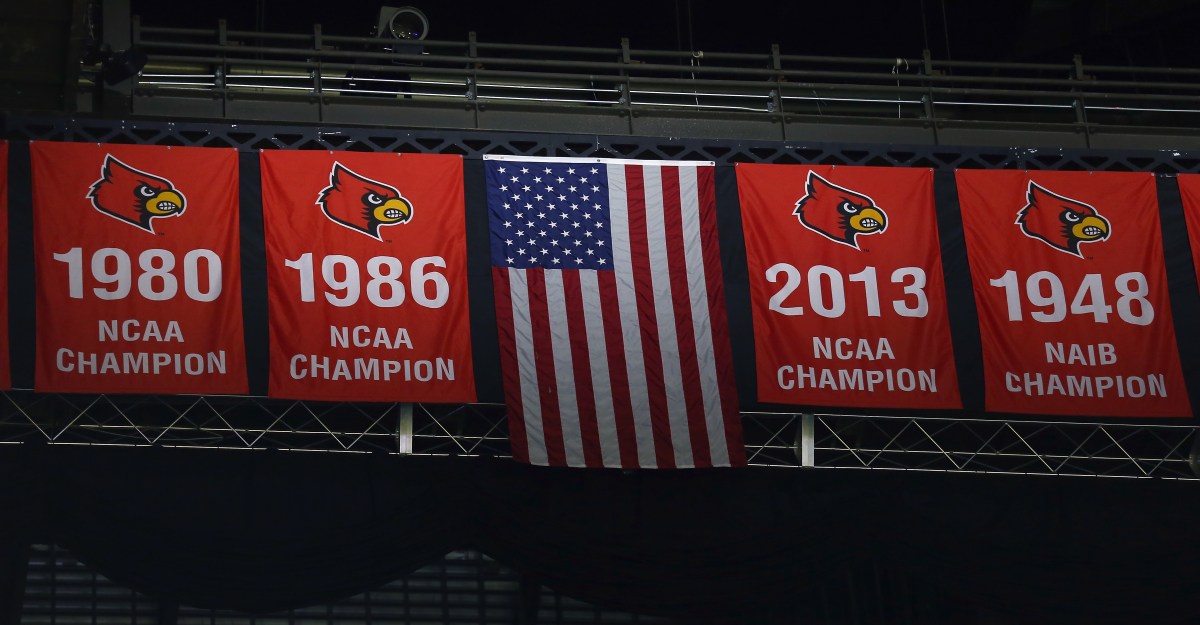The big story in the world of sports on Friday is that the Michigan football program will not face any significant penalties from the NCAA for the sign-stealing scandal that helped the Wolverines win the 2023 college football national championship. Michigan can still proudly make any and all references it wants to said national championship, and the NCAA will continue to recognize — without an asterisk — the Wolverines as the best college football team that existed in 2023.
If you want a more to the point summary …
Michigan cheated. Michigan admits that it cheated, the Big 10 admits that Michigan cheated, the NCAA has ruled that Michigan cheated.
If you want to take it a step further …
Michigan cheated in a manner that resulted in the Wolverines having a clear on-field advantage in multiple games. Michigan admits this, the Big 10 admits this, the NCAA has now acknowledged this.
And yet, there is no vacation of records, there is no postseason ban, there is nothing that will *officially diminish the legacy of the 2023 Wolverines because … because why again?
Oh, because the NCAA determined that such penalties would “unfairly penalize student-athletes for the actions of coaches and staff who are no longer associated with the Michigan football program.”
It bears mentioning at this point that Akron is serving an NCAA-sanctioned postseason ban this season because players on past teams had bad grades. Maybe if Gerald Ford had snapped the ball for the Zips things would have been different, but alas.
Now it’s time for a brief refresher course that I’m sure none of you need but are going to get anyway.
The 2011-12, 2012-13 and 2013-14 Louisville men’s basketball teams received zero on-court benefit from the actions of Andre McGee, Katina Powell and every other shady character involved in the antics that led us here.
In her book, Powell talks in detail about three specific recruits who were “entertained” by her and her girls during their visits to U of L. All three recruits ultimately chose different schools. The other players named in the book, with the exception of one, were all active members of the Louisville men’s basketball program when they attended these gatherings. The one exception was Terry Rozier, who had already signed with Louisville at the time has was alleged to have attended one of these dorm-room gatherings.
Unless you think throwing dollar bills at a naked 40-year-old months earlier was the inspiration for Chane Behanan’s Herculean three straight offensive rebounds near the end of the national title game, there’s zero argument to be made that any of the distasteful things that took place had any positive affect whatsoever on the seasons in question. Considering the recruiting decisions that followed, you could actually make a pretty effective argument that the actions of McGee and Powell actually diminished the likelihood of Louisville having future on-court success. I’m fine with leaving that road untraveled at this point.
When U of L argued initially that any financial benefit that had occurred at these parties was minimal compared to previous cases where the NCAA had handed down relatively insignificant punishments, the NCAA essentially laughed at the argument and said that making such comparisons was ridiculous given the “repugnant” nature of Louisville’s violations.
When Louisville argued in its appeal that its punishment should have been lighter due to a number of mitigating factors, including working directly with the NCAA and remaining transparent throughout the entire process, the NCAA agreed that it failed to take such factors into consideration, despite the fact that they are directly outlined in the entity’s own bylaws. It then ruled that it would not be changing anything about the punishment to U of L that it had originally handed out.
What happened at Louisville was gross. No one is denying that. But “gross” isn’t outlined in the NCAA rulebook, and “gross” alone is nowhere near justification enough for records to be removed and titles to be stripped.
In the years since 2013, the NCAA, with its actions, has made the following statements:
—There’s nothing we can do about the heinous sexual assault situations at programs like Baylor, Michigan State and Ohio State because those are legal matters, not athletic matters.
—There’s nothing we can do about rampant academic cheating (primarily within the men’s basketball program) at the prestigious University of North Carolina, because average students attended those classes as well and received the same benefits that the athletes did.
—There IS something we can about ACTUAL ON-FIELD CHEATING BY A TEAM THAT WON THE HIGHEST-PROFILE NATIONAL CHAMPIONSHIP IN COLLEGE SPORTS, but that something is limited to financial punishments and a hefty show-cause for the head coach of that team, who has zero interest in ever returning to coach at the college level again.
This all begs two major questions.
Why is Louisville men’s basketball the single most stigmatized college sports program of the last two decades? Why have acts that have been far more “repugnant” than the ones that took place at U of L and far more competitively advantageous than the ones that took place at U of L been treated with a slap bracelet and not the sledgehammer that was dropped on Floyd Street?
Actually, it begs a third question.
What the fuck are we doing here?
The NCAA’s teeth are gone. That fact is beyond debate after Friday’s ruling.
Louisville’s teeth haven’t gone anywhere. Check the logo.

